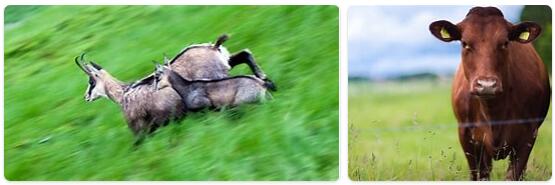In 2009, Andorra had a population of around 84,000 people. The majority of the population were ethnically Catalan, followed by Spanish and French minorities. The main language spoken was Catalan. The Andorran economy was largely dependent on tourism, with a large percentage of the population living in poverty. In terms of foreign relations, Andorra had strong ties to neighboring countries such as Spain and France as well as other European countries. Politically, Andorra had recently gone through its first free parliamentary elections in 1993 but had been struggling to establish a stable government since then. In 2009, the government faced widespread protests from citizens due to rising unemployment and economic hardship. See internetsailors for Andorra in the year of 2011.
Yearbook 2009
Andorra. In the parliamentary elections held in April, the Liberal Conservative PLA lost government power for the first time in 15 years. The Social Democratic PSD received 14 of the 28 mandates, while the four-party alliance in which the PLA was included received 11 seats. According to countryaah, new head of government became PSD leader Jaume Bartumeu. The Social Democrats had gone to elections with promises that a low income tax would be introduced, that banking secrecy would be loosened and Andorra would be approaching the EU. See ABBREVIATIONFINDER for abbreviation AD which stands for the nation of Andorra.
In May, the economic cooperation organization OECD withdrew Andorra from its “black list” of non-cooperative tax havens. Liechtenstein and Monaco were simultaneously deleted from the list, which was thus empty.
Andorra Geopolitics
Andorra is a microstate in southwestern Europe, located in the eastern Pyrenees, between France and Spain. It is the sixth smallest nation in Europe with an area of 470 km 2 and a population of approximately 79,218 residents. The country is historically linked to Charlemagne who would have created it as a buffer state to prevent the advance of the Muslim Moors towards France. Independent since 1278, the country has long lived in relative isolation throughout its history, maintaining links with Spain, France and a few other countries.
The political and institutional system, as defined in the 1993 constitutional charter, is a sui generis system. The heads of state (co-princes) are officially two: the president of the French Republic and the bishop of the diocese of Urgell (a region of Catalonia). This configuration is a legacy of the feudal system and the dependence that, even today, the country has towards the two neighboring states. The two co-principles are represented by two delegates and have limited powers. They cannot veto government acts, but they maintain their authority in approving international agreements with France and Spain and those on defense, internal security, territorial integrity, diplomatic representation and judicial cooperation. The unicameral parliament is made up of 28 members elected every four years, of which 14 represent the national constituency and 14 represent the seven ‘parishes’, that is, the administrative regions into which the country is divided. It appoints the prime minister, responsible for the executive.
With the 2009 elections, the center-right coalition lost for the first time since 1994. However, the center-left government did not obtain parliamentary approval on the proposal to introduce a value added tax in the country at 4.5 %, one of the points of a tax reform plan aimed at improving the state finances, affected by the crisis, and at initiating greater integration into the European economy. The opposition blocked the proposal by demanding more gradual reforms and, with the early elections in April 2011, the center-right Democrat party of Andorra won 20 out of 28 seats in parliament.
Andorra has no armed forces, only a police force; for defense it depends on France and Spain. The country has been a member of the United Nations since 1993 and of the Council of Europe since 1994. On the other hand, it is not a member of the European Union, the first trading partner, with which it has been part of a customs union for industrial products since 1991. The population of Andorra is not an Andorran majority: the Andorrans represent only 33% of the total population, made up for the rest of Spaniards, Portuguese and French. The official language is Catalan but Spanish and French are also spoken. The majority of the population is Christian Catholic. Andorra’s economy is mainly based on tourism, which accounts for around 80% of the total GDP. It is estimated that between 10 and 11 million tourists arrive in Andorra each year. duty-free. The banking and financial sector is the other leading element of the national economy. However, the Principality, also due to international pressure, is implementing a series of reforms in the sector and has undertaken to change the rules on banking secrecy and make banking legislation more transparent. Since May 2009, Andorra has been removed from the list of non-cooperative tax havens, drawn up by the Organization for Economic Cooperation and Development (OECD). The tertiary sector absorbs almost the entire workforce and the employment level is close to 100%. Agriculture was the pivot of the economy before the advent of tourism, with sheep farming as the main activity. However, only 2% of the country’s territory constitutes arable land and today the primary sector contributes about 2% of GDP. Andorra does not have its own currency and, historically, it has always used the French and Spanish currency; Since the entry into force of the euro in the two countries, Andorra has also adopted the single currency. The country produces hydroelectricity, from which about 40% of the electricity consumed derives. The remaining needs are imported from France and Spain.
